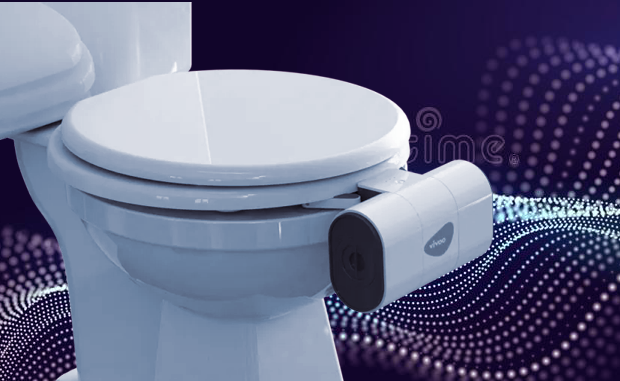

Consumer Tech Firms Showcase Latest Digital Tools to Support Care Everywhere

Knowing that health care is moving beyond traditional sites of care, tech developers are investing in new and improved tools for remote patient monitoring and care delivery.
Nowhere was this more evident than in Las Vegas last week at CES, formerly the Consumer Electronics Show. More than 500 different companies unveiled new health tech aimed at consumers, which — if adopted — could have implications for clinicians and provider organizations.
‘Hybrid’ was a big buzzword, with developers using it to describe a future model of in-person physical care combined with digital tools that can monitor, diagnose and treat patients from the comfort of their homes. Despite the show’s B2C focus, many companies with whom our Market Scan editors spoke are banking on the growth of value-based payments to expand their customer base to providers and payers. Here are the key takeaways:
Tech companies unveiled hundreds of new and improved tools for monitoring blood pressure (even via a smart mattress), respiration, heart activity, eye health, falls and more. Most notable were the number of new smart toilet technologies. Here’s one that won a CES Innovation Award, all of which touted quick and mess-free urinalysis.
While there’s no shortage of tools to provide health data to tech-savvy consumers, their impact on challenges facing the larger health care system is still to be determined. More time is needed to understand how well this technology can support better outcomes and lower costs.
AI Developers Need Provider Data; Don’t Underestimate Its Value
The growth of wearables and remote monitoring is driving an explosion of patient data. While this has the potential to improve patient diagnosis, care and outcomes, its potential only can be realized if it is mined for insights and provided to clinicians in an actionable format, said Bobby Mukkamala, M.D., immediate past board chair of the American Medical Association (AMA) and a Flint, Mich.-based otolaryngologist. Enter artificial intelligence.
Mukkamala cited data from the AMA that found most physicians believe artificial intelligence (AI) done right can improve outcomes, but stressed the need to understand what data are used to create the algorithms that drive AI tools. ‘Augmented' intelligence may be a better term than ‘artificial’ if the aim is to engage physicians, he said, noting that AI augments clinician intelligence rather than replaces it.
While consumer devices may provide a significant volume of data on vital signs and other health indicators that fuel predictive algorithms, data from providers will be critical in fueling the learning component of AI. The value of these data to tech developers is often underestimated by providers as they are bringing on new AI tools.
Take, for example, a hospital that purchases an AI tool to help predict which patients are most likely to be readmitted. While the purchased version of the tool can help target interventions and improve outcomes, the ongoing data around which interventions resulted in what outcomes and on whom improves the AI tool. If a hospital purchases a specific version of the AI tool, it misses out. Instead, hospitals should position contracts to enable access to the evolving product over time.
Tech Trends: Looking Ahead
If there’s one take away from CES 2023, it’s that there’s no shortage of interesting tech to provide what seems like limitless data on our health. But it’s just noise if we can’t make sense of data in meaningful ways, and we need tech to do that, too.
Interested in the top nonhealth care tech that grabbed our editors’ attention at CES? Check out the autonomous lawn mower; two-way translation earbuds; an AI-enabled, calorie-counting food scanner; an image-recognizing, bird-identifying feeder; and, last but certainly not least, a virtual reality-, AI-powered memorial service that allows loved ones to interact in real time with a remarkably realistic-looking avatar of the individual who has died.



